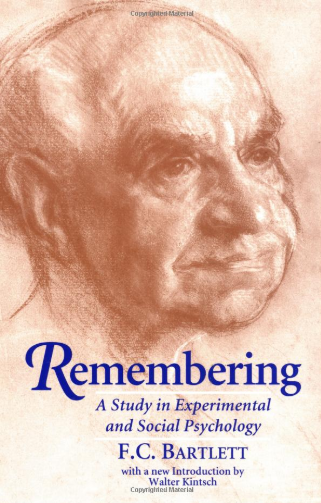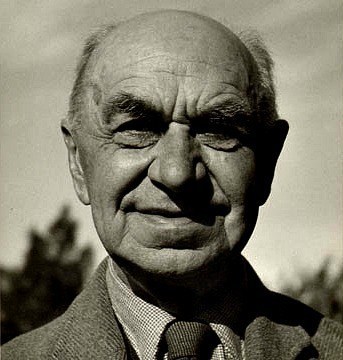Remembering, by Frederic Bartlett
This provides a good example of how discredited notions with a high representational potential (memory as a repository of fixed memories) may be conveyed in ways that make them compatible with the reconstructive, malleable, and manipulable nature of memory, which has been the object of outstanding research since Frederick Bartlett’s 1932 Remembering and of heated discussions during the “false memories” controversy of the 1990s (e.g., Loftus and Ketcham 1994).

About the book
In 1932, Cambridge University Press published Remembering, by the psychologist Frederic Bartlett. The landmark book described fascinating studies of memory and presented the theory of schema which informs much of cognitive science and psychology today. In Bartlett's most famous experiment, he had subjects read a Native American story about ghosts and had them retell the tale later. Because their backgrounds were so different from the cultural context of the story, the subjects changed details in the story that they could not understand. Besides containing important seminal concepts, Remembering is fascinating from an historical perspective. Bartlett discusses the ideas and research of Ebbinghaus, Freud, Jung, and Spearman. In addition, his comparison of Swazi African culture and British culture is a study in cross-cultural psychology that was ahead of its time. - Amazon









































0 comments
Sign in or create a free account